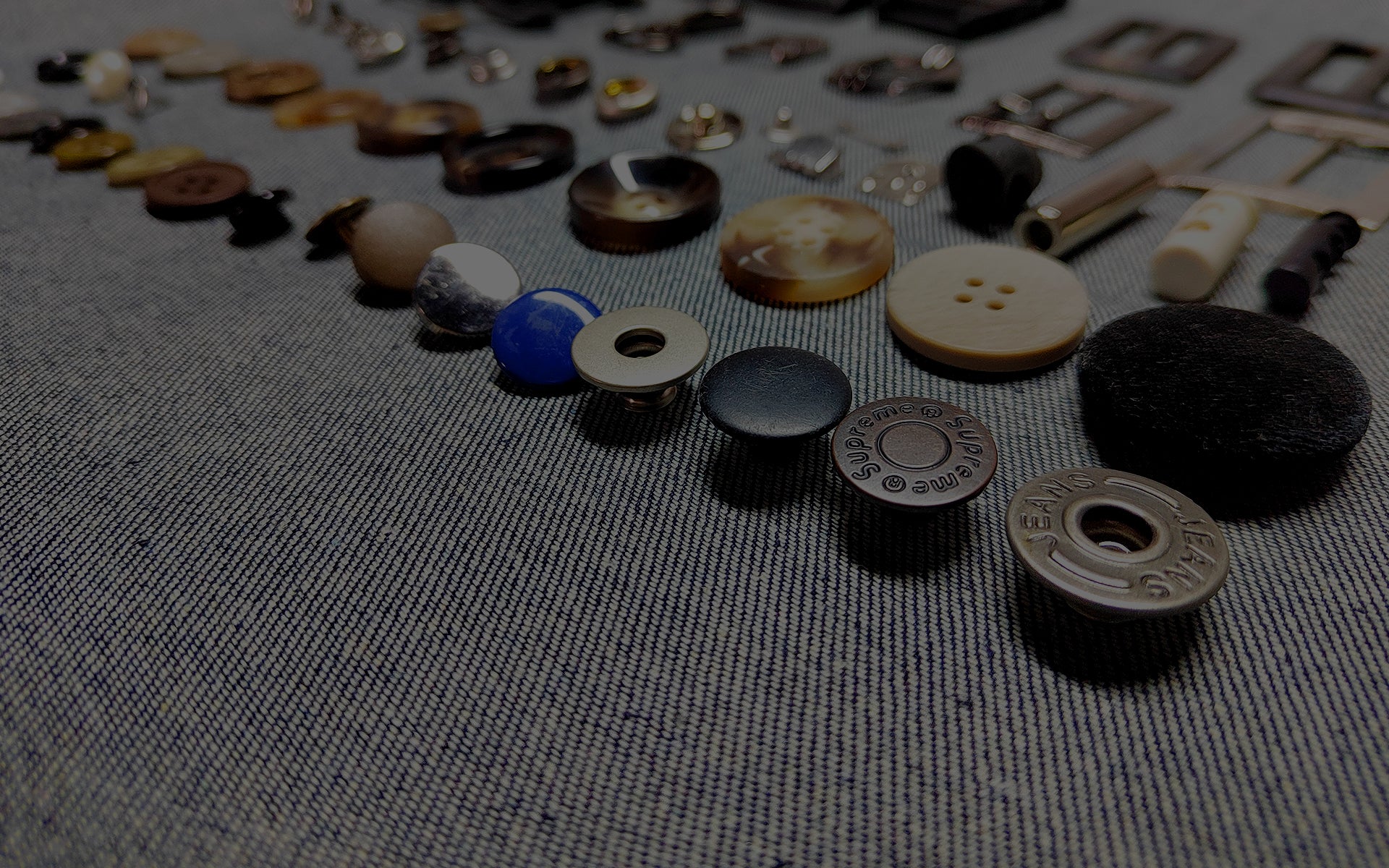
Leading button makers
MAGICSFASHION has long established a strong relationship with button suppliers, who insist on providing high quality products and services.Buttons have the role of connecting clothing parts and decoration, there are a variety of styles in the market, we will do our best to find the best button for you to suit your brand
Button's effect in Clothing
Buttons play a significant role in clothing, both functionally and aesthetically. Their effects can be broken down into several aspects:
1. Functional Effect
- Fastening: The most basic function of buttons is to fasten garments, keeping them securely in place. This includes shirts, jackets, trousers, skirts, coats, and more.
- Adjustability: Buttons often allow for adjustments in fit, such as on cuffs, waistbands, or collars, providing flexibility in sizing and comfort.
- Ventilation: Some garments have buttons that can be undone to increase airflow, such as on shirts or jackets, offering more comfort in warmer weather.
- Ease of Access: Buttons are often used in places where access to inner layers (like pockets or lining) is needed.
2. Aesthetic Effect
- Visual Appeal: Buttons can be a focal point in a design, adding texture, color, and personality to an outfit. They can be made from a variety of materials such as plastic, metal, wood, or fabric, each adding a different aesthetic.
- Style Statements: The placement, size, and material of buttons can influence the overall style of the clothing. For instance, large, decorative buttons can give a garment a vintage or bold look, while small, subtle buttons create a sleek and minimalist style.
- Pattern and Contrast: Buttons in contrasting colors or unique patterns can create a visual break in the fabric, adding interest to a garment. Similarly, buttons made from fabric-covered materials blend seamlessly with the garment's design.
3. Symbolism and Tradition
- Cultural Significance: Buttons can carry cultural significance, especially in traditional or ceremonial clothing. For instance, the buttons on military uniforms or royal garments may signify rank, status, or affiliation.
- Heritage and Craftsmanship: In high-end fashion, buttons can be crafted with intricate details, sometimes using precious metals or gems, signaling luxury or craftsmanship.
4. Practical Considerations
- Durability: The type of button used can affect the garment's longevity. For instance, metal or resin buttons are more durable than plastic buttons, which might wear down more easily.
- Ease of Repair: Buttons are one of the easiest components of a garment to repair or replace, making them practical for extending the life of clothing.
-

Horn Buttons
Customize nowA type of button made from the natural horn of animals, typically cattle, goats, or water buffalo. They have been used in clothing for centuries and remain a popular choice in high-quality garments, particularly in menswear, due to their sophisticated and timeless look.
-

Eyes Metal Buttons
Customize nowThe body of the button is usually made of metal, such as brass, aluminum, or stainless steel. The eyelet can be made from the same metal or a complementary material, depending on the button's intended use and aesthetic.
-

Nailless Buttons
Customize nowThis kind of button is generally used in temporary fixed or decorative clothing, more convenient to match all kinds of clothing.
-

Gourd Type Buttons
Customize nowThis button is generally used in slip dresses, halter pants, denim rompers, easy to use, taking into account the aesthetic effect.
-

Stud Buttons
Customize nowA type of button characterized by its flat, raised center and often decorative or functional post that protrudes from the back.Stud buttons are typically used in Jeans, Denim jacket,outerwear, leather goods.
-

Natural Shell Button
Customize nowA type of button made from real shell material. These buttons are prized for their organic beauty, unique patterns, and iridescent sheen, which give them a luxurious and natural appeal. Often used in high-end fashion, formal wear, and vintage-style garments due to their timeless elegance.
-

Resin Buttons
Customize nowResin buttons are highly customizable and can mimic the appearance of natural materials like wood, stone, bone, or metal, while offering greater durability, versatility, and design possibilities. Resin is lightweight, easy to mold, and can be produced in a variety of colors, textures, and finishes, making it a popular choice in fashion, especially for both casual and formal garments.
-

Plastic Electroplated Buttons
Customize nowA type of button made from plastic that undergoes an electroplating process to apply a thin layer of metal onto their surface. These buttons are commonly used in fashion, especially in outerwear, suits, and uniforms, where a metallic finish is desired but the button needs to remain lightweight and affordable.
-

Snaps Fastener
Customize nowIt consists of two interlocking components — a socket (female part) and a stud (male part) — which snap together securely when pressed. Snap fasteners are widely appreciated for their quick fastening mechanism, convenience, and ease of use.









